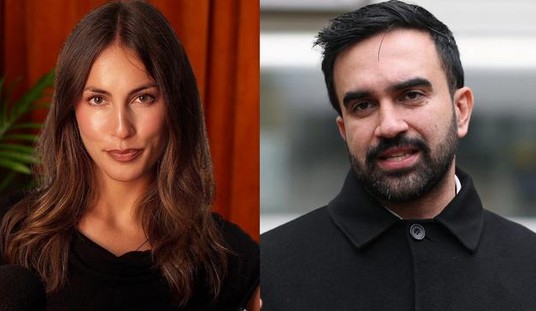The Philippines’ bombastic president said in China that he wants to break away from the United States — and the Obama administration said they’re going to try to figure out what he meant.
President Rodrigo Duterte, who took office in June, has been making headlines ever since with his history of advocating the extrajudicial killing of drug addicts, compared his purge of addicts to Hitler exterminating the Jews, calling U.S. Ambassador to the Philippines Philip Goldberg the “gay ambassador” of Secretary of State John Kerry and “the son of a whore,” told President Obama “you can go to hell” but the EU “better choose purgatory,” called Pope Francis a “son of a whore” and blamed the Catholic Church for overpopulation, and more.
In Beijing, Duterte told business leaders, “America has lost now. I’ve realigned myself in your ideological flow.”
“And maybe I will also go to Russia to talk to Putin and tell him that there are three of us against the world: China, Philippines and Russia,” he added. “It’s the only way.”
En route to events in Miami today, White House spokesman Eric Schultz told reporters aboard Air Force One that “the U.S.-Philippine alliance is built on a 70-year history, rich people-to-people ties, and a long list of shared security concerns.”
“We have not received any official request from Philippine officials to alter any of our many issues where we bilaterally cooperate,” Schultz said. “I will tell you that we continue to be the Philippines’ strongest economic partner. Current stock of foreign direct investment — I happen to have this — is $4.7 billion. And we continue to outpace any other country in terms of direct investment into that country.”
Obama has previously called Duterte’s remarks “colorful.”
At the State Department, press secretary John Kirby told reporters that “obviously we’re aware of this rhetoric” and “we still hold that it is inexplicably at odds with the very close relationship that we have with the Filipino people, as well as the government there, on many different levels, not just from a security perspective.”
“We are going to be seeking an explanation of exactly what the president meant when he talked about separation from the U.S. It’s not clear to us exactly what that means in all its ramifications. So we’re going to be seeking a clarification on that,” Kirby said.
Assistant Secretary of State for East Asian and Pacific Affairs Daniel Russel will be in Manila this weekend, a trip that Kirby claimed wasn’t spurred by the latest turn of events but was “long scheduled.”
“But it does give us an opportunity in the context of these comments to try to get a better explanation of what was meant by ‘separation’ and where that’s going,” he noted.
“The last thing I’ll say on this — well, two more things. One, it isn’t just the United States who is baffled by this rhetoric. We have heard from many of our friends and partners in the region who are likewise confused about where — where this is going, and also, we believe, are trying to learn more on their own about what it portends.”
Also, Kirby said, “we remain rock solid in our commitment in the mutual defense treaty that we have with the Philippines.”
“That hasn’t changed. There has been, for all the rhetoric we’ve heard, there has been no tangible application of the intent behind, or at least the stated intent behind some of the things… we’re continuing to move forward and have every interest in seeing this 70-year alliance continue to grow and to develop and to deepen. That’s our commitment,” he continued. “We have a close relationship not only with the government, but with the people of the Philippines. And it is our hope and our expectation that that will continue.”
Thus, Kirby said, “we have an interest in trying to gain a little bit more clarity on what he meant… we had in the past and in recent weeks, we’ve seen some of this bombastic rhetoric clarified or walked back after the fact.”









Join the conversation as a VIP Member